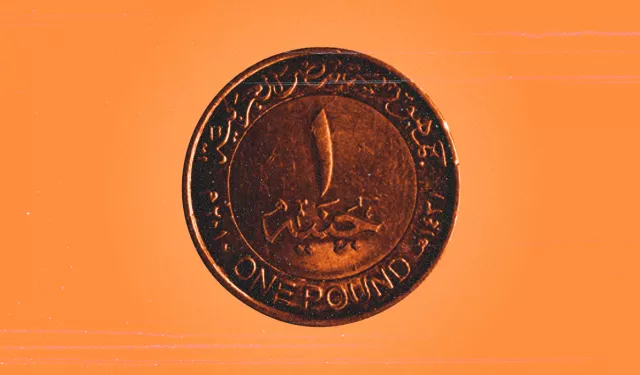
The danger behind moving bins
On the afternoon of Arafat Day, I set out on foot, encouraged by the rare absence of traffic during the holiday—despite the blazing sun that now beats down mercilessly on streets stripped of pavements and shade.
There was no trace of Eid joy on the faces of passersby—only the weight of foreboding. The few trees spared from slaughter stood motionless. Yet inanimate things were in motion.
Garbage bins rolled as far as the eye could see: an unusually large number of green and black containers. They were not pushed by the army of Hassan Ibn Tubba, legendary Himyarite king of Yemen, foreseen by Zarqa al-Yamama, the pre-Islamic woman famed for her uncanny eyesight.
They were pushed by peaceable men, and sometimes women, in the orange and blue uniforms of sanitation workers. All looked exhausted: some greeted passersby with “Eid Mubarak” in the hope of a tip; others walked on in silence, their eyes doing the asking.
Nothing new. Those who have enough and more have long given to beggars and street sweepers, to service staff upon arrival to work, and to doormen on returning home. Eid was once an occasion for such giving, when those who could afford it offered money or bags of meat in exchange for the prayers of the needy.
But that spirit of solidarity is fading. The change is most visible during the holidays: now, the person being asked avoids the one asking, muttering in irritation or in helpless sympathy; and if he or she gives, it is grudgingly.
Salary increases over the past decade have not come close to keeping pace with prices, which in some cases have risen a thousand percent.
The state knows
The government cannot claim that the wages of sweepers are enough to spare them the humiliation of begging. Nor is it fair to accuse sweepers of greed when malnutrition is written all over their faces.
The state cannot be ignorant of the workings of social solidarity, now under threat as life becomes harder for all and the “change-fever” of the New Republic adds burdens to everyone’s back.
The state knows full well that personal almsgiving is the smallest part of the charity economy. The greater share goes to donation-based associations that shoulder much of the work that is, in truth, the state’s own responsibility. Their budgets are said to be public.
In a 2019 post, the head of one such association said its accounts were available on its website—but I found nothing, and received no reply to my email. Yet the sums sometimes announced for such collections are vast, amounting to a second tax—collected under the banner of piety and religious compassion, and spent on health, education, and social care: the very purposes for which official taxes are levied.
To be fair, the Old Republic deserves recognition for institutionalizing charity, encouraging fundraising bodies, and even protecting them from corruption when it chose to.
The New Republic, then, is not innovating but continuing the exploitation of charity for its own ends. Donations are now a fixture, and at the very least, this social fabric should be preserved to retain the nation's capacity for mutual aid. That requires rethinking the flood of new, irrational fees and stamps whose harm may outweigh their benefit.
The fever for loose change does not build an economy; it merely shuffles banknotes around.
Profit and loss
The state does not hide behind moving bins; it is too strong to beg. It lies instead in wait at the key crossroads of life—and makes demands. Chief among these is education.
Even free education, nominal as its fees once were, could be a burden to some families—often eased by benefactors. But since 2000, students have been required to submit an application for the general secondary exam.
In the past, they filled out the form by hand with their teachers’ help; now they must register online, navigating the infamously clumsy government websites. After uploading documents, including proof of payment of a new exam fee at the post office, students must still submit originals and copies to their school. This new levy has done nothing to improve education or school facilities—if anything, the opposite.
Previously, schools collected fees and kept a share for their needs; that share vanished when payment was shifted to the post office.
By the arithmetic of want and change-fever, the state’s gain can be calculated by multiplying the fee per student by the nearly half a million who take the exam. This is not economics—it is petty swindling, eroding the constitutional principle of free education and dragging bureaucracy backwards.
From the perspective of sound governance, the high school application-file scheme is a clear loss: each file requires two days of a parent’s time, adding up to roughly a million lost workdays—not counting the hours of government staff, the wasted movement of half a million people through the streets, the fuel consumed, or the environmental cost.
It seems that the Ministry of Education has become the undisputed master of the unreasonable, under the leadership of a minister whose qualifications and decisions alike are under challenge.
The latest invention is the weekly assessment file for children in the early primary grades. This file requires photocopying worksheets at the parents’ expense—particularly burdensome for poorer families whose schools lack any photocopying facilities.
Yet the cost of this paper is not borne by parents alone: its ink, machines, and the paper itself are imported, and propping up such services carries economic and environmental costs.
This comical edict is merely another manifestation of the unreasonable, compounding the burdens of an education stripped of content—and the result is a rising rate of school dropouts.
The most brazen educational snare is the teacher recruitment competition, whose file costs over a thousand pounds in fees and travel—extracted from the unemployed or underemployed, with only about 10% accepted.
Why not accept applications with a graduation certificate alone, and require only the successful to provide the rest? The ministry’s own Facebook page records applicants’ outrage at this extortion.
The price of the unreasonable
I often think of The Little Prince’s exchange with the king who ruled a tiny planet, in Antoine de Saint-Exupéry’s novel. The king claimed he ruled everything—even the sun and moon. The child asked him to order the sun to set. The king looked to the horizon and said, “I order you to set at nine o’clock.” The boy saw it was a trick and asked for an immediate order instead. “If I commanded a general to fly,” the king replied, “and he did not, who would be at fault—me or him? I am obeyed because my orders are reasonable.”
By reverse logic, every unreasonable order chips away at the state’s prestige and stability, eroding acceptance of its rule. This damage cannot be repaired by 24-hour online propaganda or late-night security pundits, no matter how they plead with those wounded by over-taxation.
Sadly, “the unreasonable” has become the second great seduction of the New Republic—after change-fever.
In job competitions, the unemployed -who should be receiving unemployment benefits- are made to pay for the privilege of applying, as if the position were merchandise to be sold, not a duty owed to the public good.
People swallowed the tenfold increase in the price of birth certificates, and even the growing demand for them in every official step they take. But to set an expiry date for such certificates is the height of the absurd—and a bitter joke.
Apart from criminal records, it is irrational to impose expiry dates on documents like birth, death, graduation, or military service certificates. These events happen once; no one can undo them. Setting a one-year limit is petty fraud—unworthy of a self-respecting administration.
The unreasonable as harassment
Worse still, the lure of the unreasonable sometimes turns into gratuitous harassment and contempt for those at its mercy—without yielding the state any gain.
The clearest example is the prepaid electricity meter, introduced in 2019, which leaves subscribers vulnerable to sudden cutoffs if they forget to top up. Friends have told me of power cuts after midnight, or during travel, ruining everything in their fridges.
What did the state gain from replacing the old meters? Why must the consumer pay for a device the company reclaims when the contract ends? We do not take our own scales to the grocer; the meter is the company’s, and should be its expense.
In reality, the new meter only accelerates the company’s revenues; no claim of “protecting its rights” can justify payment before service.
As one of those with an old meter, I often only thought of what others endure until the day I visited the dentist, who left me in the chair when electricity officials arrived to replace his meter. It made me wonder about clinics, pharmacies, or other places where lives may depend on continuous service.
A single article cannot list every manifestation of the unreasonable in government levies, some of which cannot be discussed openly because of the heavy hand of certain authorities.
Forced silence is not consent. And if the only result of the twin seductions of change-fever and the unreasonable is to exhaust Egyptians’ capacity for empathy and aid to the poor, then the loss is truly grave—and the danger hides behind the moving bins.
Published opinions reflect the views of its authors, not necessarily those of Al Manassa.

